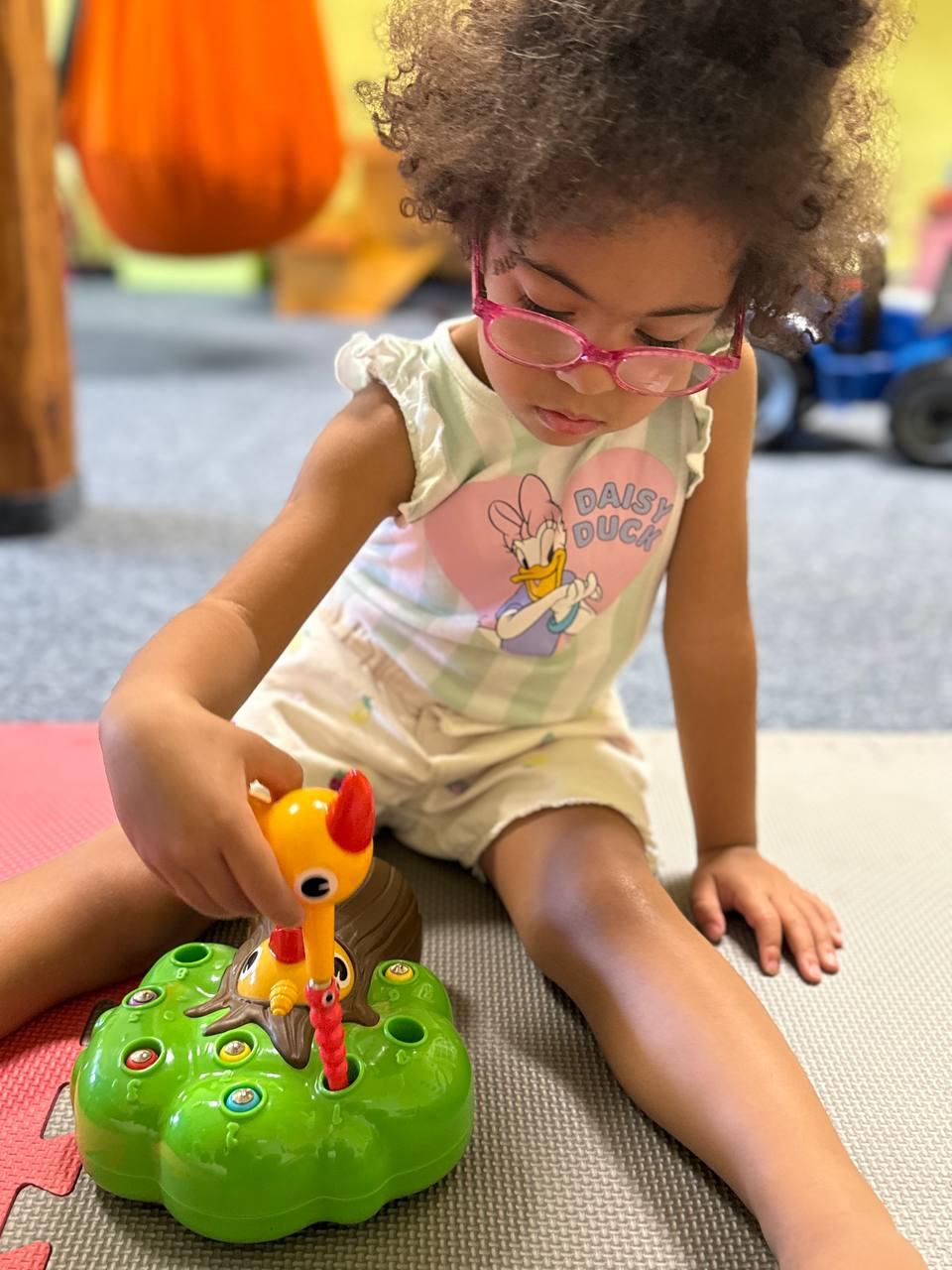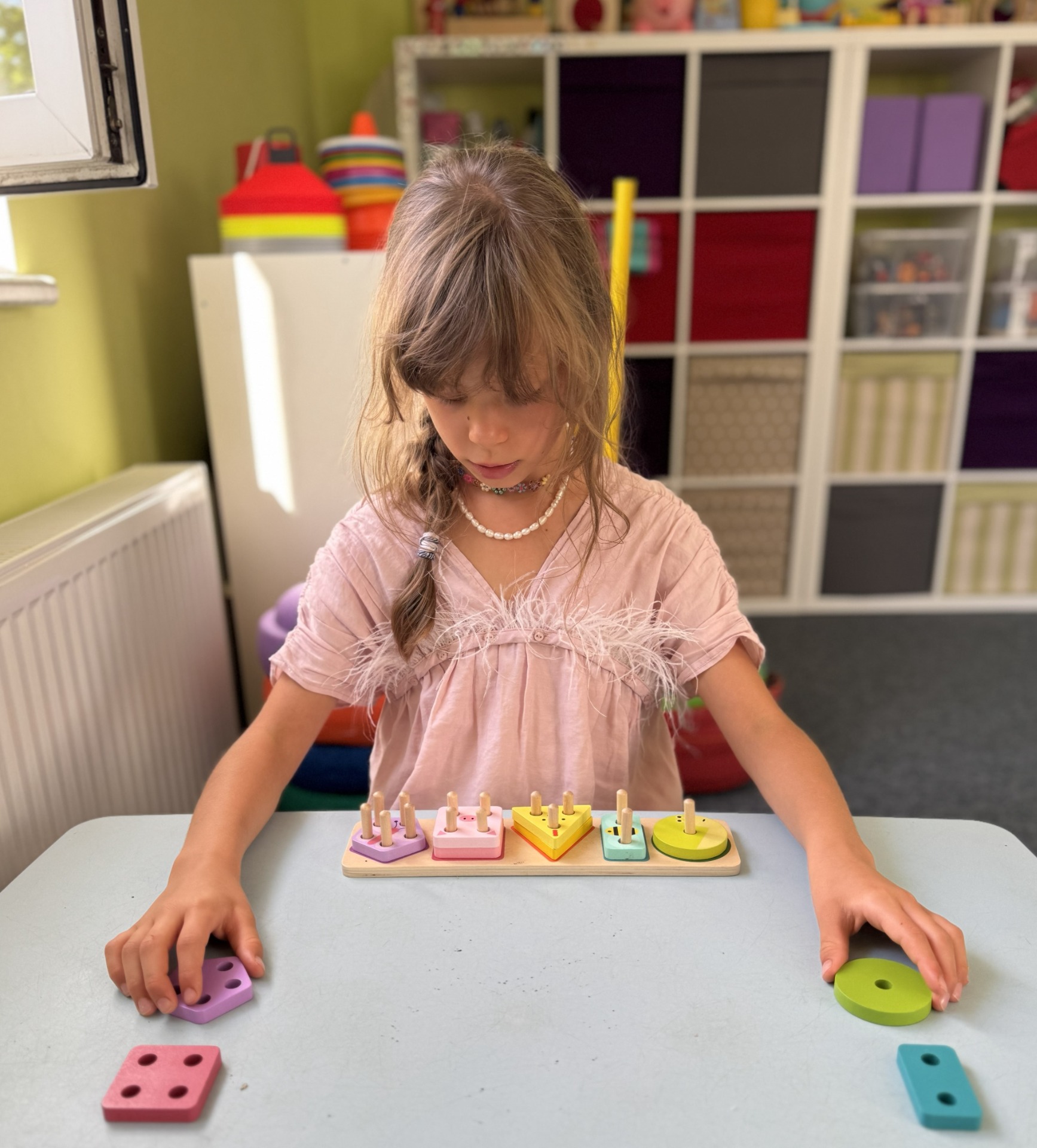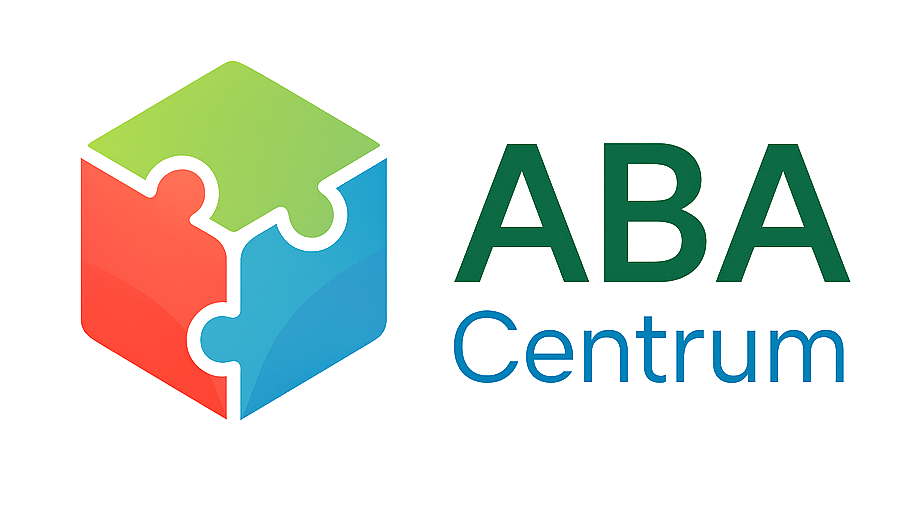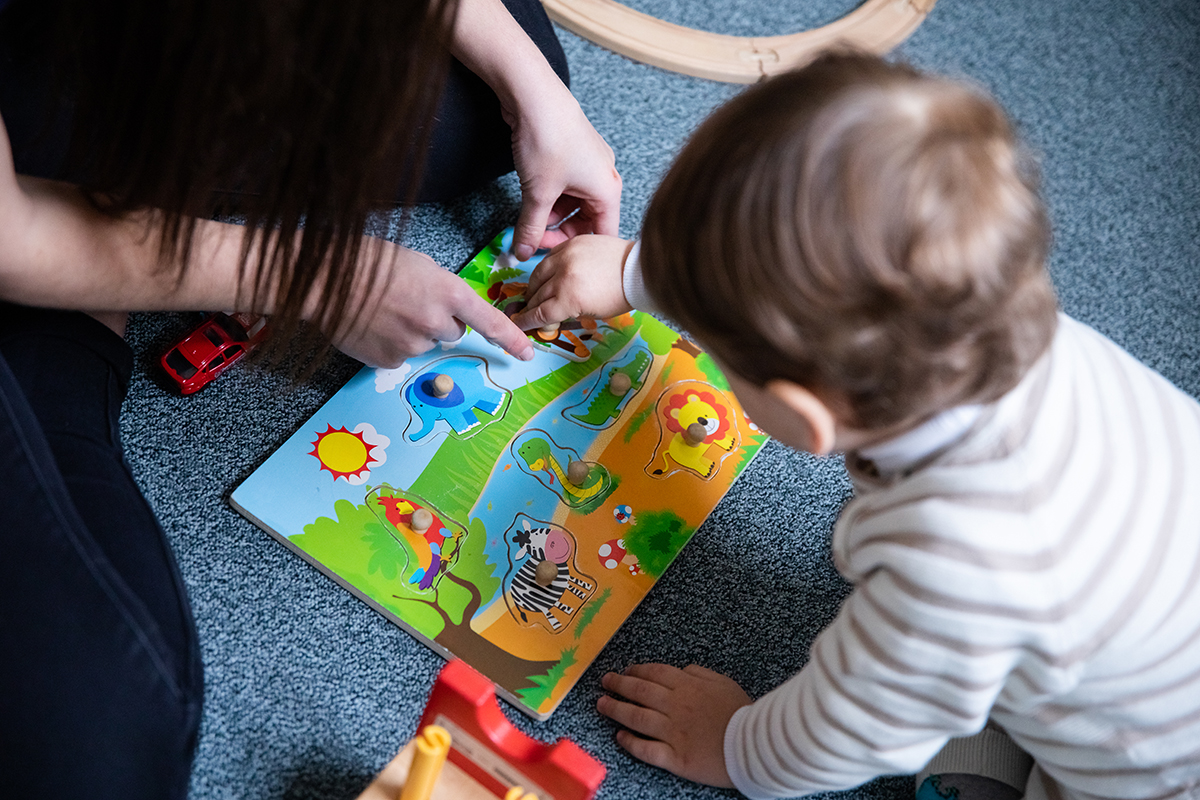"Together for a better future."
Welcome to the ABA Center – a center for educating children with autism spectrum disorders and other developmental disorders
Support for children with autism spectrum disorders and other developmental disorders
We are a center specializing in the education of children with autism spectrum disorders and other developmental disorders. We offer individual therapies, educational programs and support services for children and their families. We are located in Prague and our goal is to help children with disorders in their overall development and inclusion in society.
Supporting children with autism spectrum disorders

ABA-Centrum provides comprehensive support for children with autism spectrum disorders and other developmental disorders. We offer individual therapy, group activities, educational programs for parents and other services. We strive to help children and their families create a fulfilling and happy life.
1. Therapeutic support for families
1. Individual therapy for individual family members - this form of therapy focuses on the needs and problems of individual family members and helps them better understand their emotions and behavior. 2. Family therapy - a therapeutic method that focuses on the entire family as a whole and helps them communicate and solve problems together. 3. Group therapy for parents - this form
2. ABA Therapy
2. Applied behavioral analysis is a natural science that is based on the principles of learning and behavior - behaviorism. It deals with the functional relationship between the environment and behavior. Based on a detailed analysis of this relationship, it determines why certain behavior arises and how to modify it.
It is not important to us what the behavior looks like, but why it happens. Honest data collected will show us in what situation the behavior occurs, and thus give us a clear message about what skills the child does not master and we need to teach them. Learning in the concept of applied behavioral analysis is very structured, but this certainly does not mean that it is boring! On the contrary, our goal is to set up learning in such a way that it is fun for the child and motivating in itself.
Using the ABA methodology, children learn new skills that gradually replace unwanted behaviors, improving self-care, communication, learning, and social interaction. The ABA methodology is very sophisticated, and the child's program is always set strictly individually down to the last detail.
3. Neurotherapy
3. Neurotherapy is a complex of special psychological methods that are aimed at restructuring impaired brain functions and creating compensatory means so that the child can continue to learn independently and control his behavior.
Neuropsychological therapy is intended for children from preschool age to puberty. It is especially recommended for such types of deviations as:
- Children with ASD
- mental retardation
- delayed mental development
- neurodevelopmental disorders
- dyslalia
- dysarthria
- dysphagia
- ADHD
- And others
In neurotherapy, we use techniques that serve to overcome deviations and disorders in the development of mental functions in children aged 4 to 15. Neurotherapy is particularly effective when working with children who have:
- manifestations of hyperactivity, impulsivity;
- excessive fatigue, irritability;
- distraction, clumsiness, inaccuracy;
- difficulties with thinking, speech, spatial representations, attention and memory;
- slow school performance due to problems with writing, reading, counting.
All these disorders have a common cause: weakness or lack of formation of the necessary neural connections in the child's brain.
A child's brain is formed throughout life. This process has its own order, it has a number of precisely defined stages. If these stages are disrupted for one reason or another (difficult birth, illness, developmental characteristics or adverse influences of the environment in which children grow up), brain development is also disrupted.
In such cases, the child needs neurodiagnostics and neurodevelopmental and behavioral therapy.
4. Sensory integration
The environment provides us with various sensations. It is these sensations, as well as our reactions to them, that cause the development of the brain.
No one needs to form ideas about an object, phenomena of the world, develop speech, if the basis for it is not created, which is sensory integration.
Sensory integration is the process by which a child's nervous system receives information from the receptors of all sensory systems (olfactory, visual, auditory, gustatory, proprioceptive, vestibular, tactile), then organizes and interprets it in such a way that it can be used in meaningful activities.
SIGNS OF SENSORY INTEGRATION DYSFUNCTIONS:
- difficulties in learning new skills: everyday, motor, speech, educational;
- excessive motor activity or, conversely, hypoactivity;
- low or increased muscle tone;
- difficulties in adapting to new spaces, people;
- speech disorders;
- clumsiness/awkwardness, increased caution or, conversely, lack of a sense of danger;
- intolerance of bright lights or certain sounds;
- walking "on tiptoes", motor clumsiness, problems with imitating movements;
- refusal of social contacts (the child does not play with peers, avoids interaction).
The task of specialists is to identify the violation, help to streamline the sensory processing process, adjust the correct reaction and new sensory experience so that the child can more easily adapt to the changing environment and better interact with the larger world.
Sensory integration "we fit all the puzzles together as a single picture".
5. Special education teacher
The main work of a special education teacher is focused on the development of cognitive activity in a child, which is achieved using versatile programs and methods. A special education teacher solves such tasks as:
- individual development of sensory skills;
- development of cultural and hygienic skills;
- formation of correct speech, achieved by expanding horizons (the teacher introduces the child to the outside world, thereby supplementing his vocabulary and forming coherent speech);
- demonstration of the game (in the event that the game skills do not correspond to the child's age);
- acquisition of skills in written and oral expression by the method of auditory perception (the child finds sounds in the spoken word);
- formation of simple arithmetic skills (thanks to the acquired knowledge about the quantitative and temporal properties of objects);
- development of motor skills using simple creative tasks;
- and other tasks of child development.
A special educator is a special specialist who works at the border of pedagogy and medicine. Her tasks include diagnostics, training, educational activities and socialization of children with developmental disorders, physical or mental illnesses.
Children with developmental disabilities have some difficulty learning new skills, controlling their emotions or behavior, and building relationships with adults or peers. They often cannot acquire knowledge as easily as their peers and lose interest in learning. Characteristics associated with the pace of development, illnesses, lead to teachers or parents of other children reacting poorly to them and demanding "correct" behavior.
Due to the lack of special education, parents of such children cannot always understand how difficult it is for them to learn and adapt. The level of demands on their child, on others, on the educational institution increases. Consultation with a special educator will help parents:
- objectively assess the causes of difficulties in learning, socialization;
- understand what they can do to change the situation;
- obtain information about what activities will help in this case.
A recommendation to visit a special educator should not be considered a quick assessment of the child's psychological state. Individual instruction with a special educator recommended in these cases:
- children with autism spectrum disorders;
- preschoolers and schoolchildren with speech disorders;
- children with acquired or congenital diseases of the musculoskeletal system (ICP);
- children with defects of the central, peripheral nervous system;
- children with delayed mental and psychomotor development;
- children with mental retardation;
- children having difficulties with learning in kindergarten, school.
Early start of work brings the best results: the younger the child, the more plastic his brain is. Assimilation of material, correction of unusual behavior are easier. And parents have the opportunity to accept the situation earlier, not to demand the impossible from the child.
6. Speech therapist
A speech therapist will help eliminate many potential problems in the future. In some cases, the help of a specialist is an absolute necessity. Exercises with a speech therapist have a positive effect on the child's psychological development, form the correct movements of the speech apparatus, enrich the vocabulary and develop phrasal speech.
A speech therapist is a specialist who deals with the elimination and correction of speech disorders in children. With his help, you can correctly "build" sounds, eliminate stuttering and other speech defects.
In addition, a visit to a speech therapist opens up many other opportunities for the child's development: physical formation of the speech apparatus, concentration of visual and auditory attention, checking the correspondence between the child's age and his IQ.
A speech therapist will
help a child formulate his thoughts correctly and quickly. This gives more opportunities for general cognition and communication with peers. Consultation with a speech therapist is recommended for the following disorders:
- phonemic – violation of the pronunciation of a sound or group of sounds;
- General speech underdevelopment – violation of sound pronunciation, vocabulary deficit;
- phonetic-phonemic – violation of sound pronunciation and replacement of some sounds with others;
- stuttering – involuntary repetition of syllables and letters, forced stops during speech.
7. Diagnostic consultations
Comprehensive development diagnostics
Diagnostics at our center includes several stages:
- Anamnesis (taking into account the individuality of each child), study of materials from the doctor (examination, recommendations, EEG, MRI, ECHO, ICP, genetic and other tests),
- Diagnosis of the child by a neuropsychologist (development of higher mental functions, motor and sensory spheres)
- Assistance in forming the parents' request taking into account the zone of actual and nearest development of the child, compilation of nearest educational goals.
- Answers to current questions from parents (you can prepare and write them down in advance).
Comprehensive neuropsychological diagnostics
The diagnosis is carried out by neuropsychologist, family and child psychologist Mikhaleva Anastasia. The specialist is responsible for diagnostics, organizing a safe space and responding to parents' requests.
The parent is responsible for providing the most complete information about the child, timely attendance at the consultation. After the consultation, you will receive information about recommended methods and directions, we will select a suitable schedule of visits for you and advise on any discounts or bonuses.
PRO diagnostics
Specialist council: child neuropsychologist, speech therapist, special education teacher, ABA therapist
ABA therapy consultation
Initial consultation or any additional consultation on a specific topic with the center's main therapist
Consultation with a child psychologist

Customer opinions
We have been visiting the center for more than a year. In 2019, there were some fluctuations in its functioning, but after organizational changes at the beginning of 2020, the center now functions very well, both organizationally and professionally. Pleasant environment, great friendliness towards clients, everything can always be reasonably agreed upon. My child always looks forward to therapy and it is evident in his results, we are grateful to the ABA center for the great progress. I definitely recommend it.
PEGGYSS 247
Questions and answers
1. Who is ABA Therapy suitable for?
ABA (Applied Behavior Analysis) therapy is suitable for a wide range of people, especially children with autism and other behavioral disorders. This method focuses on negative behaviors and replacing them with positive alternatives. Through a systematic approach, ABA therapy can help individuals improve their communication skills, social interactions, and independence.
Key target groups
- Children with autism
- Individuals with ADHD
- Children and adults with behavioral disorders
- Individuals who need structured educational support
- Families looking for effective strategies to improve behavior
To maximize the potential of ABA therapy, it is important that interventions are tailored to the individual needs of each client. This ensures that the therapy is as effective and beneficial as possible for the individual and their family.
2. Is our team ready to provide you with professional assistance?
Our team of experts is fully prepared to provide support in the field of ABA therapy and related services. With the rich experience and professional education of each member, we are able to offer a high-quality and individual approach to each client.
Our team members have professional certifications and years of experience in behavioral analysis, which allows us to effectively respond to the needs of our clients and their families. We are committed to providing professional and empathetic care that brings positive changes to the lives of children and their families.
3. How best to book a consultation or find out the suitability and type of therapy?
You can use the contact form below to write any question or request for information. We will respond to you promptly and answer your questions. You can also use the order form to specify specific requirements for consultation or specific services.
Please write your reference.
In this section you can easily upload and manage testimonials from our satisfied customers. Testimonials serve as a trusted source of information for new customers interested in our services. Please remember to include all relevant details that can help others make decisions and help us improve our services.
Contact
For general inquiries, please contact us.
Address:
ABA-Centrum
Rápošovská 110, 190 16 Praha 21

